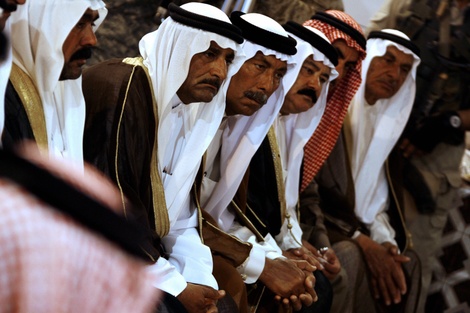As one might expect, John Burns has a subtle, smart take on the success in Anbar of pitting Sunni tribes against al Qaeda in Mesopotamia. On the one hand, it's a major turning point - and the specter of Muslims fighting al Qaeda is in itself a gain in the public relations war. On the other, it depends on a homogeneous entity in which Sunnis do not really have to confront Shia or Kurds in running their own province. That makes a tactical regional success non-replicable on a national model - because the civil war dynamic kicks in:
Two factors that have led to the astonishing success in Anbar the Sunnis' dominance of the province and the nature of their foe here could have the opposite effect elsewhere, especially in Baghdad. There the population is an explosive mix of sects, rather than largely Sunni. And the Sunnis' fight explicitly so, in the case of many of the new volunteers is not just against Al Qaeda-linked extremists, but ultimately against the American presence here, and beyond the Americans, the new power of the majority Shiites.
The Anbar strategy, in other words, can only really work alongside a political strategy of soft-partition. Which leads to a thought about next spring's redeployment. Perhaps a post-surge plan for withdrawing troops from contested areas like Baghdad could add troops to those homogeneous Sunni or Shia areas where local militias and tribes are keen to keep al Qaeda at bay. Our forces could perhaps be designated primarily as an anti-al-Qaeda force, stationed at the invitation of local leaders. And then they could do what they do best - instead of trying to hold together a country that no longer effectively exists.
(Photo: Anbar sheikhs by Patrick Baz/Getty.)
